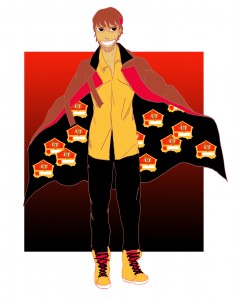Exchange of residential parking passes confirmed fraudulent
Although it’s been a matter long unspoken of, the exchange of parking permits among students has been confirmed to be both against university policy and a crime.
According to UTDPD’s Lt. Ken MacKenzie, there were instances of students breaking into vehicles and stealing permits the first week of classes this year.
Regardless of break-ins, purchasing a permit using someone else’s vehicle information is a crime.
“When you buy a sticker, that sticker goes with your car,” MacKenzie said. “Buying a permit for a car under your name that is not your car is considered filing fraudulent information, and that is a crime.”
The lower price, closer proximity to campus and more convenient access to available parking has created a type of black market where commuting students can purchase residential parking permits from UV residents.
UV lots have become coveted by commuting students wishing to pay less for more accessible parking.
Some UV residents have turned this into an opportunity to make a profit by purchasing residential parking permits for their peers and charging them a larger amount of money than they paid to acquire the permit online.
Signs advertising the sale of residential parking permits were found on UV mailboxes by The Mercury photographer Yang Xi.
Computer science senior and commuter Alex Henkemeier had the opportunity to purchase a UV parking permit via a friend but ultimately decided against the transaction. Henkemeier didn’t want to take the permit away from his friend if he at some point decided to bring a vehicle to campus, he said.
“I wanted a red sticker because it’s cheaper and spots are easier to find,” Henkemeier said. “The worst spot in red is better than the worst spot in green, because a lot of the farthest away apartments are still closer to campus, and it saves time because there are more open spots and youv don’t have to spend 20 minutes looking for a spot.”
Only one UV permit is allowed per user account a year. This means any student selling their permit does not own a vehicle, does not need access to a space or has means of purchasing permits using multiple accounts.
“As an ex-resident, I can confirm that I did this,” said a chemistry senior on the UT Dallas subreddit who wished to remain anonymous. “I usually never drove anywhere outside of getting textbooks, so I just left my car at home and sold my sticker to a semi-trustable acquaintance that always complained about parking.”
He sold the permit for $10 over its original price.

Randy Herbert, an emerging media and communication senior and former resident, said the business venture had occurred to him as well.
“I had it as a business idea myself back when the residential spots were $40 dollars and I lived in the apartments,” Herbert said. “Most of the commuters said they would have considered the idea, but had already purchased a normal parking permit by the time they heard of it.”
While some UV residents see the issue as an opportunity, others have voiced complaints about commuting students using third-party residential parking permits to park closer to campus.
“As a resident myself, not only is it annoying when people do this, it’s straight up unethical,” said electrical engineering student Daniel Sidelsky. “There is nothing like not being able to leave campus with your car because you know there will be no parking left when you return.”
The price of residential permits has doubled this year from $45 to $90 in order to help pay for new parking infrastructure. The potential profit gained from these under-the-radar transactions has been reduced, and may help to eliminate the issue.
Students wishing to sell their unused residential permit will now have to pay $90 to purchase it under their name off the school’s website.
“I doubt anyone could make a profit off of it now because of the price increase,” Herbert said.
The risk of being caught also discourages students from participating in the residential permit market. According to Cris Aquino, director for parking and transportation, no incidents of this nature have been reported, but the practice is not authorized by the administration.
“If an incident of this nature were to be reported to parking and transportation, the case would be fully investigated,” said Aquino. “If confirmed, the case would be referred to the Dean of Students for further action.”





